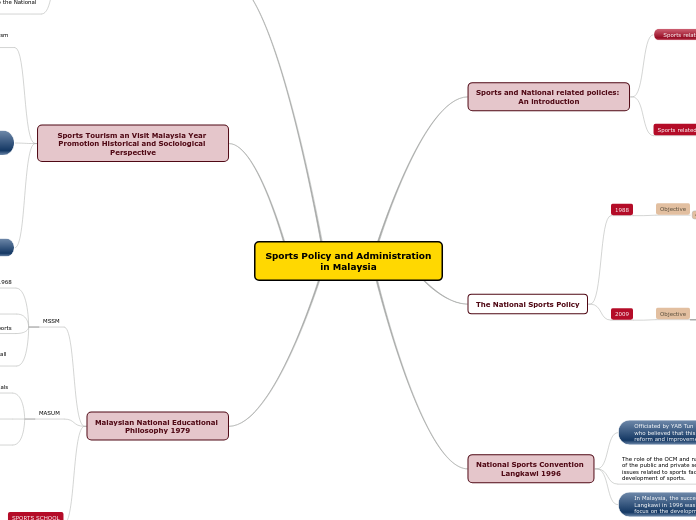TOURISM
DIGITAL MARKETING
Introduction to the Topic of Digital Marketing and its Impact on Hospitality
Practices to sell online
Video marketing
Podcasting
Conversion optimization
web analitics
Native Ads
Mobile ads
Retargeting
Email marketing
Content marketing
Cost per action
Shopping Ads
Pay per view
Paid social advertising
SEO
SEM
Paid Advertising
Media buying
Pay-per-click
As the hospitality industry continues to innovate, so will marketing practices like SEO, search engine marketing, paid advertising, email and content marketing, reputation management, and Web analytics, which means that staying ahead of trends is key if you want to enhance your ability to sell online.
Digital marketing has significantly impacted the hospitality space, making critical features like bookings, accommodation selection, and loyalty rewards delivery instant and easy for the consumer.
When a hospitality brand markets online using digital technologies and online strategy- this is considered digital marketing.
Content Management and E-Commerce Platforms
Messaging Apps and Chatbots
Internet of Things (IOT)
Affiliate Marketing
Inbound marketing
Loyalty Programs
Subscriptions
Social Media
E-COMMERCE TECHNOLOGIES
Dynamic Landing Pages
Dynamic Landing Pages are very useful because convince your target demographic to buy or act on your buying segments, according to what they want and what they searched for, they show the individual consumer exactly what they are looking for, using the media that will work best
Live Chat
Live chat and multi-channel assistance offers consumers a reliable, convenient, and instant method of acquiring the answer to questions they need, to complete planning and make the purchase.
Social Buy Buttons
Social Buy Buttons allow the consumer to buy something they like directly from the platform they are on from their own mobile phone, conveniently using a simple, direct buy button.
Email Subscriptions
All a subscription requires is an email sign up page and permission from your consumer to become part of your list
Browser Notifications
Powerfull method of attracting consumers back to yourr Web site and other media
Social Sharing
The act of social sharing needs to be taken into account when creating your content
Analytics
Is a system for finding, understanding and using important data and the patterns that will give your brand insight into how best to improve conversions and sales across the board
Conversion Rate Optimization
Is the process or set of systems required to help you improve how many sites visitors decide to act on your various prompts and messages
E-Commerce Web Apps and Tools
They will work together as a coherent strategy
for converting and retaining your atrracted
traffic.
Servers
e-commerce server
Is used to handle everything, from
online reservations to purchasing
Web server
Provides the requested Web
pages to the end user
Stores web pages
E-COMMERCE AND DIGITAL MARKETING IN PRACTICE.
SECURITY CONCERNS
E-Commerce Security Trends
Fake Reviews: Hackers create fake news endorsing a product. Reviews make people buy things and if they are bad, people choose other product.
Zero-Day Exploits: A zero-day vulnerability refers to a hole in software that is unknown to the vendor. This is then exploited by hackers.
Exploiting Social Commerce: Criminals will also use social platforms to spread fake news to manipulate stock prices for financial gain. Much social trust will be destroyed for these.
Types of malicious software or cryptoviruses that execute an unlawful act on an unsuspecting cyber victim:
-Adware or Spyware: displays advertising materials.
-Malware: disrupts or damages computer systems or data within computer systems.
-Ransomware: involves a threat to publish personal data in return for ransom.
Growth in Cyber Crimes: Cybercrimes are growing continuosly. Some motivations include corporate espionage, social justice and identity theft.
Weak password and email attachments: most common methods that allow cybercriminals
Message Integrity
When a message is sent, the sending and receiving computers generate a code. With message integrity both parties know that what they are seeing is exactly what the other party has sent.
Message Security
Components of secure online transactions:
-Authentication: The costumer can verify that the Web site not belong to an impostor
-Message Privacy: SSL encrypts all information using a unique session key.
Secure sockets layer (SSL): is the industry-standard protocol for secure. The result is a secure communications channel between a server and a costumer.
Securing Your Web Site
Certification authority (CA): issue the server ID to use the company name and Web address. Review credentials to ensure that organizations are what they claim to be.
Server ID: is the electronic equivalent of a buniness license
Security of Your Electronic Transactions
Major risks associated with e-commerce and its security include:
1. Spoofing: create illegitimate sites that appear to be published by established organizations, to obtain information.
2. Unauthorized Action:alter your website and refuse to potential clients
3. Unauthorized Disclosure:Hackers intercept a transmission to obtain sensitive information
4. Data Alteration: The content of a transaction can be intercepted and altered.
Channels
User-Generated Content
Social Commerce
Mobile Commerce
Auctioning
Advertising
The obvious and the most complex aspect
of e-commerce and digital marketing
Ads are presented in many ways
Retargeting ads
Native ads
adds that appear to be part of the
content that the user is consuming
ORGANIZATION
EMAILS - ORGANISING INFORMATION
Ordering Information in an email: Functional Language
Closing
-All the best.
-Yours,
-Kind regards,
-Regards,
-Yours sincerely,
Concluding Email
-Let me know...
-Hope to hear from you soon.
-I look forward to hearing from you.
-Thank you for your email.
-Please do not hesitate to contact me if you have any questions.
Ordering Information
-Firstly
-Then
-Thirdly
-After that
-Finally
Reason for Writing
-Just a quick email to let you know...
-I'm writing to inform you that...
Greeting/Opening
-Dear Sir/Madam...
-Good Morning...
-Hello/Hi...
BUSINESS SKILLS
Small Talk in First Meetings: Functional Language
Asking and Answering Questions
Socialising
-Are you free for [lunch today/dinner this evening]?
Colleagues
-Do you report to [Paul Blaetther]?
-Do you work with [Dave in the Mexico office]?
Time with Company
-When did you join de company?
Place of work
-Where do you work exactly?
-Where are you based?
-Are you in the [Zurich] office at the moment?
Experience
-Is it your first time [in the London office/at the conference]?
Journey
-Did you have a good [flight/journey/trip]?
Offer help/Hospitality.
-Can I take your [coat/bag]?
-Can I offer you [something to drink/a coffee/a glass of water]?
-Can I order you a taxi?
COMMUNICATION SKILLS
Managing First Meetings: Functional Language
Saying Goodbye
-Excuse me. [I must take this call].
-OK, so we need to leave it there.
-Sorry to [be in a rush like this/rush off so soon].
-Thank you for coming and have a [safe trip/good weekend]
Introducing People
-Let's go and [meet the rest of the team...]
-I'd like to introduce you to...
-Have you met [Miranda] before? She works for/works with/runs...
-Do you know [the design guys]?
-[Guys,] this is Stefanie.
Meeting and Greeting
-How's it going?
-[Did you have] a good trip?
-Can I get you [anything to drink]?
-[Good/Great/Lovely/Nice] to finally meet you in person.
-[Good/Great/Lovely/Nice] to see you again.
-So, first time in [London]?
FUTURE FORMS
A NEWS ORGANISATION
Organizational structures
Expressions people use to talk about their jobs
Coordinate with
I coordinate with all departments to ensure customer satisfaction
In charge of
I´m in charge of the research and development team.
Responsible for
I´m responsible for coordinating the production team.
Take care of
I take care of the export decumentation.
Look after
I look after the company website
Work closely with
I work closely with the Head of Marketing
Head of
I´m the head of Sales.
Report to
I report to the IT Director
Jobs
News Reporter
Works with a camera operator to make sure they are getting the right pictures.
Programme Director
Lead the production team. This job is similar to the conductor of an orchestra
News Edior
Gives a reporter the task of covering a news story.
Finance Supervisor
The most important thing about the job is to ensure that payments are made on time
Director of Human Resources
Has several strategic and operation priorities
Departments in a Company
SALES
This department is in charge of the costumer service
PRODUCTION
This department is in charge of manufacturing
OPERATIONS
This department is in charge of quality control of the company's products or services and of the supply chain.
MARKETING
This department is in charge of creating a recognized brand image and the promotion to the products or services offered by the company.
HUMAN RESOURCES
This department is in charge of the health and safety of employees and the correct recruitment of future employees of the company.
FINANCE
This department is in charge of cash flow, verifying and controlling prices, and making invoices.
GASTRONOMY
Professional Skills
Giving feedback
Focus on the problem,
not the person
Make it clear that you are talking
about specific actions that could be
improved
Not criticizing
Include positive feedback
mix negative comments with praise
Use the feedback sandwich
Put forward solutions
Recommendations for improvement
Channel the conversation
Listener can make progress
Choose the right time
Don´t wait if something
important needs to be said
Regular intervals
Create a dialogue
Ask questions
Don´t assume you know
why a mistake has been
made
Listen attentively
What makes a good restaurant?
Wait time
Service
Price
Food quality
Décor
Background music
Atmosphere
Ways of cooking food
Stew
Steam
Simmer
Roast
Poach
Grill
Fry
Boil
Bake
Describing food
Negative
Tough
Rotten
Ripe
Rancid
Insipid
Greasy
Positive
Tender
Tasty
Succulent
Mouth-watering
Done to a turn
Delicious
Appetizing
Culinary tourism
Fare
Produced
Whet the appetite
Forked out
Gourmet products
Palate
Wine and dine
Savour
Bland
Tempt the palate
Relative Clauses
RISK
Professional skills
Facing the media
Inform all the measures you take to ensure the safety of your passangers or visitors
State the facts relating to the location and casualties, as well as the history of such disasters
point out
Deal with the facts of the situation and express your concern
Be quick to relay the information at your disposal
Dealing with crises
Crisis Managment Plan
After the crisis
Conduct a post-crisis review to learn the lessons of the past
Work out an action plan to make sure the disaster does not happen again
During the crisis
Set up a hotline to keep relatives and friends adequately informed
Provide prompt and effective action to prevent escalation of the situation
Produce an immediate plan of action that prioritizes needs and is based on an accurate assessment on the emergency situation
Before the crisis
Anticipate every imaginable situation that might arise, man-made or natural, starting with those that are most likely to happen
Develop a media communications strategy in the event of a major crisis
Identify the types of records that must be completed in the event of an emergency and how to complete and submit them
Prepare your organization`s contingency plans for handling emergency situation
Vocabulary
Adventure Sports
Whitewater rafting
Skydiving
Skiing
Potholing
Mountaineering
Hot-air ballooning
Horseback riding
Bungee jumping
Level of risk
Huge
Considerable
Acceptable
Slight
Remote
Risk prevention
Enabled
Protected place
Warn the risk
Monitor the risk
Spread the risk
Type of risk
Crime
Kidnapping
Hijacking
Fraud
Civil unrest
Strikes
Riots
Demonstrations
Economic
Rising fuel prices
Recession
Currency fluctuations
Health
Skin Infections
Personal Injuries
Pandemics
Infectious diseases
Natural
Earthquake
Tsunami
Floods
Hurricanes
Avalanches
Grammar
Modal Verbs
Subtopic
To refer to the past









